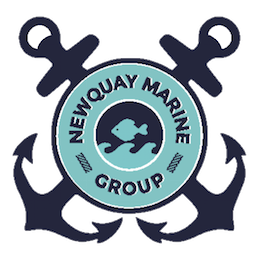UPDATE – our paper is now published!! Read it here
In 2017 a group of volunteers across a number of business and conservation groups joined together to form the Cornwall Marine Microplastics Researchers (CMMR): Citizen Science at its best! We call it Trawlshare for short!
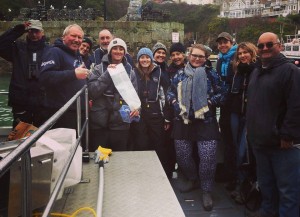
Trawlshare:
The coastline around Cornwall is a rich marine habitat vital to many wildlife species. In 2016, Newquay and the Gannel were designated as a Marine Conservation Zone due to their environmental importance, an area at Padstow has also been designated. However, with threats to the ocean ecosystem from plastic pollution, the issue of microplastics (tiny pieces that have broken up in the sea from larger pieces) is becoming a serious problem.
The idea was to survey and complete some research into the plastic that is hard see.
Funded by the partners and also grants from the Bedruthan Hotel Sea Changers and Natural England the CMMR was set up! In it’s second year, CMMR also received funds from Keep Britain Tidy and Sea Changers (again). Thank you to them.
Our partners:
St Agnes Marine Conservation Group
Polzeath Marine Conservation Group
Cornwall Seal Group Research Trust
Newquay Sea Safaris and Fishing
This is a citizen science project. Conducted by our volunteers.
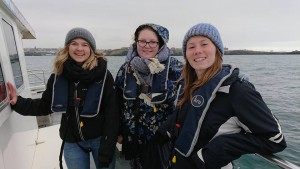
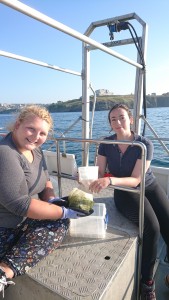
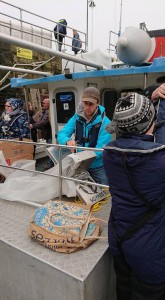
The Global Link
The CMMR got in touch with Global 5 Gyres Trawlshare programme (www.5gyres.org) to borrow one of their trawls with the aim to be the first project examining microplastics on a large scale on the north Cornish coast. The trawl (which is attached to a net) is towed behind the boat on the surface of the water, for approximately two hours to collect a sample.
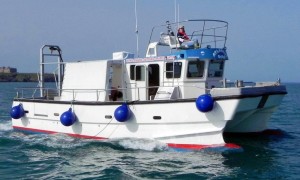
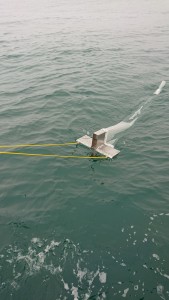
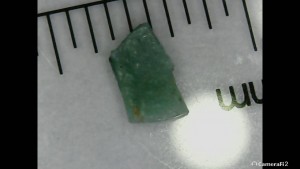
Micoplastics are 1mm- 5mm in size – often plastic that has been in the ocean for a long period of time and has been degraded and eroded into smaller and smaller pieces. The plan is to investigate the spatial and temporal distribution, quantity and type of microplastics using regular boat trawls and analysis of materials found.
The data collected by CMMR is be fed into the global data set of the 5Gyres Trawlshare project. International Scientists led by 5Gyres co-founder Dr Markus Eriksen use the data to produce a global estimate of how many particles of plastic are in the sea. Estimates are crucial in providing evidence of the state of our seas to enable campaign for changes in our plastic consumption. In 2014 5Gyres published the first global estimation of 5.25 trillion particles of plastics in the worlds oceans. This used data from Trawlshare research and has been instrumental in affecting change at an international policy level.
Cornwall
We believe we can utilise the 5Gyres Trawlshare model. By using the data we collect from The North Cornish Coast we can identify trends in data and produce an estimation of microplastics. Without a baseline study, we cannot know what the state of our local sea is like. We need the data to provide evidence to enable and fuel action.
We also need the data to design and foster a better understanding of the pathways and distribution of microplastics along the north Cornish coast and the potential impact this may have on our marine conservations zones and the wildlife that inhabits them.
Training
All volunteers who wanted to help with the Trawlshare project had to do some training. This included room based and boat based training. We practised set up and trawling it behind the boat where it collected samples from the water column. The training then moved indoors for lab work where the findings were analysed and separated into categories.
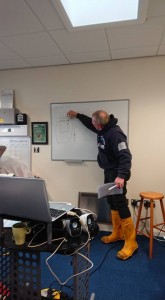
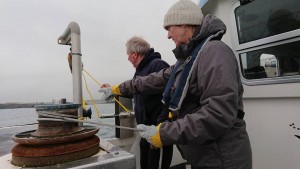
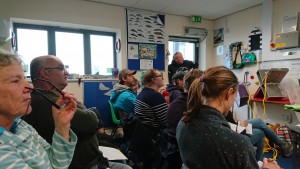
Analysing
Time is not the same when you are sorting through a sample. Three hours can go by in two minutes!
The sample is collected in the ‘ cod end’ of the trawl net. Everything in the cod end is tipped into a sieve and dried out. Using tweezers, magnifying glasses, a microscope and a few other bits and bobs, we look for and remove any pieces of microplastics (5 mm or less) and macroplastics (bigger than 5 mm). We categorise them, weigh them and record them.
A few cups of tea and some cross eyes later and it’s done!
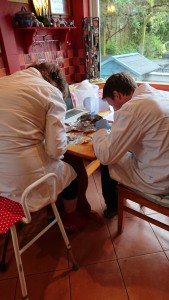
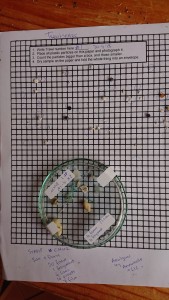
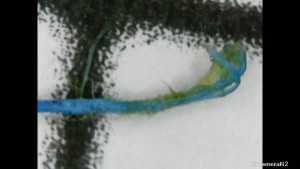
We have completed 30 trawls and analysed the contents. We have found microplastics in every trawl, mostly in the category ‘ fragment ‘ and ‘ line’. We estimate there are 2 million pieces of plastic (1-5mm) floating on the surface of the sea between St Agnes and Padstow in the inshore area (out 6 nautical miles).
Thank you to 5Gyres and Sea-Changers in particular for helping us to extend the 1 year project into its second year!
And THANK YOU to all of the volunteers who have helped.
If you wish to see a copy of the report we have written after our first year of trawling, please email newquaymarinegroup@gmail.com.
